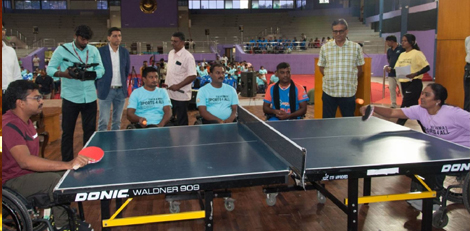Longevity of life may be more if parents have lived long, says study
Posted on: 20/Aug/2016 9:40:07 AM

A new study on parental ageing has found that the age that your parents die gives a strong hint of how long you will live for. The study says that having a mother or father who lives until 70 raises the chance of also surviving until your eighth decade by 17 per cent. And the effect is cumulative, so if a parent lives until 100 the chance of making it to 70 jumps by 68 per cent. Parents who make it to their 70s also lower the risk of their children dying from heart disease or cancers.
For each decade over 70, the risk of cancer dropped by seven per cent, and heart disease by 20 per cent. The study was conducted by researchers from the University of Exeter Medical School, and was funded by the Medical Research Council. The research, which was published in the Journal of the American College of Cardiology, also involved researchers from the University of Cambridge, the French National Institute of Health and the Indian Institute of Public Health.
Speaking about this, the researchers said, To our knowledge, this is the largest study to show that the longer your parents live, the more likely you are to remain healthy in your 60s and 70s. Asking about parents’ longevity could help us predict our likelihood of ageing well and developing conditions such as heart disease, in order to identify patients at higher or lower risk in time to treat them appropriately.
Data from 186,000 people aged 55 to 73 years enrolled in the UK Biobank were collected. The participants were followed for up to eight years. The team found that those with longer-lived parents had lower incidence of multiple circulatory conditions including heart disease, heart failure, stroke, high blood pressure, high cholesterol levels and atrial fibrillation. Although factors such as smoking, high alcohol consumption, low physical activity and obesity were important, the lifespan of parents was still predictive of disease onset even after accounting for these risks.
Speaking about this, the researchers said, It’s been unclear why some older people develop heart conditions in their 60s, while others only develop these conditions much later in life or even avoid them completely. Our research tells us that, while avoiding the well-known risk factors such as smoking is very important, there are also other factors inherited from parents. As we understand these parental factors better, we should be able to help more people to age well. This study provides additional fuel to really bolster research efforts by us and others in Geroscience, a field that seeks to understand relationships between the biology of ageing and age-related diseases. Ageing is the most important risk factor for common chronic conditions such as heart disease, Alzheimer’s and cancer, which are likely to share pathways with aging and therefore interventions designed to slow biological ageing processes may also delay the onset of disease and disability, thus expanding years of healthy and independent lives for our seniors.







